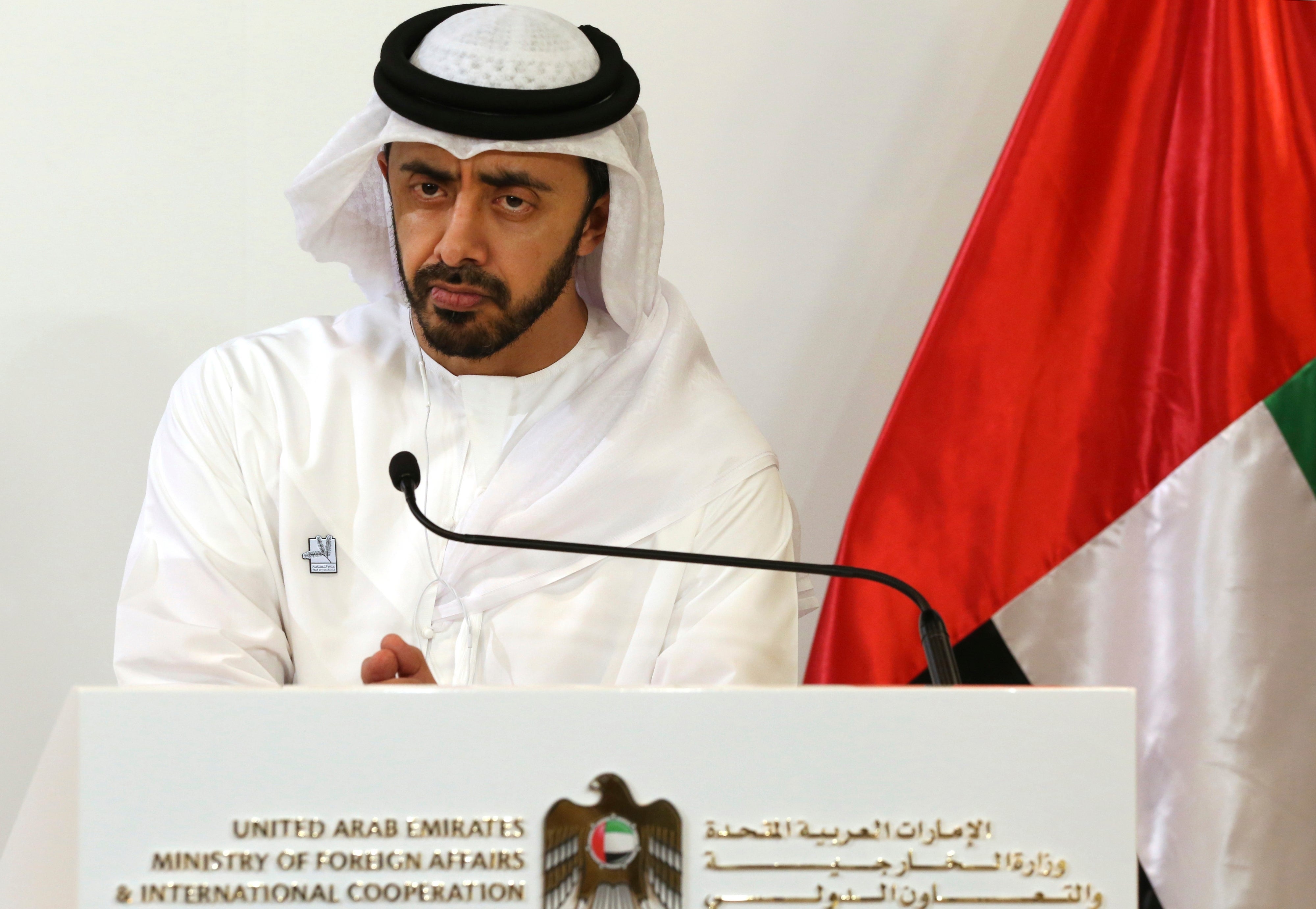UAE minister: US sanctions on Syria challenge rapprochement
The United Arab Emirates' foreign minister says U.S. sanctions against the government of Syrian President Bashar Assad have undermined efforts to bring a regional settlement to the Syrian conflict

Sweeping U.S. sanctions against the government of Syrian President Bashar Assad undermine regional rapprochement efforts that could help settle the Syrian conflict, the foreign minister of the United Arab Emirates said on Tuesday.
In a joint press conference with his Russian counterpart in Abu Dhabi Emirati Foreign Minister Sheikh Abdullah bin Zayed Al Nahyan pushed for “joint action with Syria,” saying that the American economic pressure campaign “as it is today makes the matter difficult.”
He further pushed for the reinstatement of war-torn Syria in the 22-member Arab League and noted the government and private sector “could play a role” in returning Syria “to normal” after years of ruinous war.
Sheikh Abdullah's remarks underscore shifting regional dynamics as the 10-year anniversary of Syria’s civil war looms next week. The United Arab Emirates had supported the Syrian opposition during the early years of the war.
But as the Syrian army recaptured most of the territory from the opposition, the UAE and other Arab countries made openings toward Assad’s government. In 2018, the UAE reopened its embassy in Damascus, for the first time since the start of an organized Arab diplomatic boycott in 2011.
Syria near-complete isolation has increased since the Trump administration in 2019 enacted legislation known as the Caesar Syria Civilian Protection Act. The sanctions, which U.S. officials said aimed to hold “accountable the Assad regime for atrocities it has committed against its own people,” target Assad, his close circle of associates and family, senior security officials and troops as well as the Central Bank and any institutions believed to have played a role in the violence in the war in Syria.
While Assad may have won the military war against his opponents with the help of backers Russia and Iran, he faces an even bigger challenge of governing while more than 80% of his people live in poverty.
Russian Foreign Minister Sergey Lavrov did not elaborate on the Syrian conflict at the press conference beyond saying that Russia “supports a political settlement” there, as well as in war-scarred Libya and Yemen.
In Libya, the UAE and Russia provided military aid to east-based Libyan commander Khalifa Hifter as his forces battled the U.N.-recognized government for control of the country's capital last year.